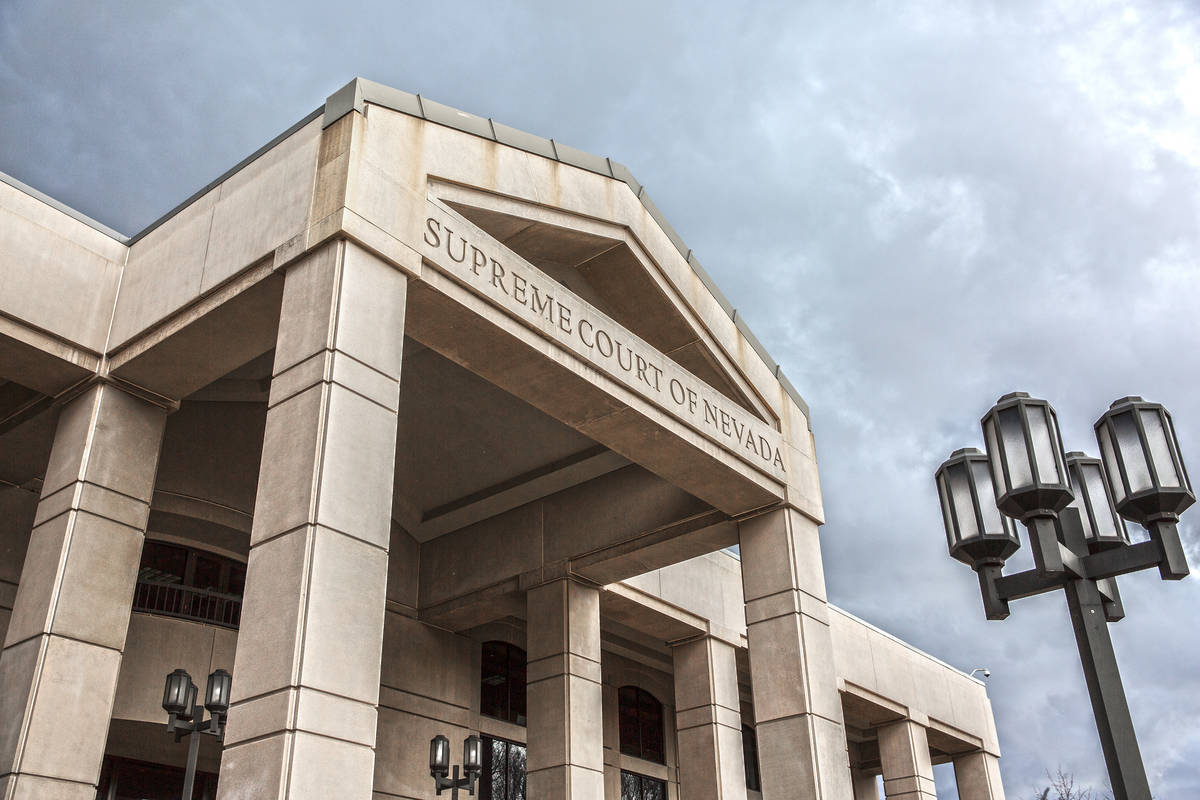EDITORIAL: Nevada Supreme Court must stop dodging this issue
The Nevada Supreme Court has spent years skirting cases involving the state constitution’s separation of powers clause. It shouldn’t put it off any longer.
Defense attorneys are now questioning the validity of charges brought by prosecutors who moonlight as state lawmakers. Senate Majority Leader Nicole Cannizzaro and state Sen. Melanie Scheible both work in the Clark County district attorney’s office, an executive branch agency.
The situation comes after a November ruling in which District Court Judge Richard Scotti threw out a DUI conviction prosecuted by Ms. Scheible, citing the separation of powers doctrine. The case has a good chance of landing in front of the high court.
Judge Scotti’s ruling adhered to the state constitution. Article 3 unambiguously establishes the independence of the executive, legislative and judicial branches of government. “No persons charged with the exercise of powers properly belonging to one of these departments shall exercise any functions, appertaining to either of the others,” it states.
Note the placement of this clause in the state constitution. Article 1 details Nevadans’ inalienable rights. Article 2 deals with who gets to vote. Then comes Article 3. This is no accident. Before Nevada’s founders bestowed authority upon the Legislature, the judiciary and the executive, they made it clear they should operate as separate entities. The Nevada Supreme Court has previously recognized the importance of this.
“The division of powers is probably the most important single principle of government declaring and guaranteeing the liberties of the people,” the court stated in its 1967 Galloway v. Truesdell decision. It also called these distinctions “fundamental in our system of government.”
The reason for this is obvious. One of the most important limits on governmental power is the check and balance each branch provides against the others. Consolidated authority is a recipe for tyranny.
Unfortunately, the state high court has been unwilling to address blatant constitutional violations of this sort in recent decades. In 2004, it declined to rule on the issue, making the highly dubious claim that it would violate the separation of powers for the judicial branch to tell the legislative branch that its members weren’t qualified. It suggested a challenge to a legislator’s executive branch employment.
The free-market Nevada Policy Research Institute has spent the better part of a decade trying to do just that. But Nevada courts have consistently ducked the issue, largely on dubious “standing” grounds. In one instance, state Sen. Mo Denis quit his executive branch job after the group filed a lawsuit. The high court ruled his resignation made the lawsuit moot.
For his part, Clark County District Attorney Steve Wolfson said the issue is “ripe for the Nevada Supreme Court to weigh in.” But he argues that the state senators who are in his employ aren’t committing a constitutional violation.
“There is a distinction between a deputy district attorney, who is a public employee, not a public officer, like the DA,” he said. “Because of that distinction, we believe that the separation of powers clause should not preclude the prosecutors.”
That’s a fine-sounding argument, until you remember the actual language of the constitution. No such distinction is outlined. Instead, the clause states that no “persons charged with the exercise of powers properly belonging to one of these departments” — a legislator, for instance — “shall exercise any functions, appertaining to either of the others.” Lawmakers/prosecutors are clearly exercising the powers of the legislative branch while also exercising the function of the executive branch — and a mighty significant function at that.
Yet Mr. Wolfson pretends that the clear language of the state constitution is shrouded in fog. “That’s why we have courts to help interpret rules and laws,” he said. “Our position is no. They aren’t exercising any policy making, so it wouldn’t apply.”
Such linguistic legerdemain speaks volumes. Mr. Wolfson is saying that his office isn’t bound by the constitution until a court says it is. Public officials should take the opposite approach.
This is an open-and-shut case, although it will no doubt cause discomfort among the state’s political elite. “Any function” means any function. It’s long past time for the state Supreme Court to say so.






















